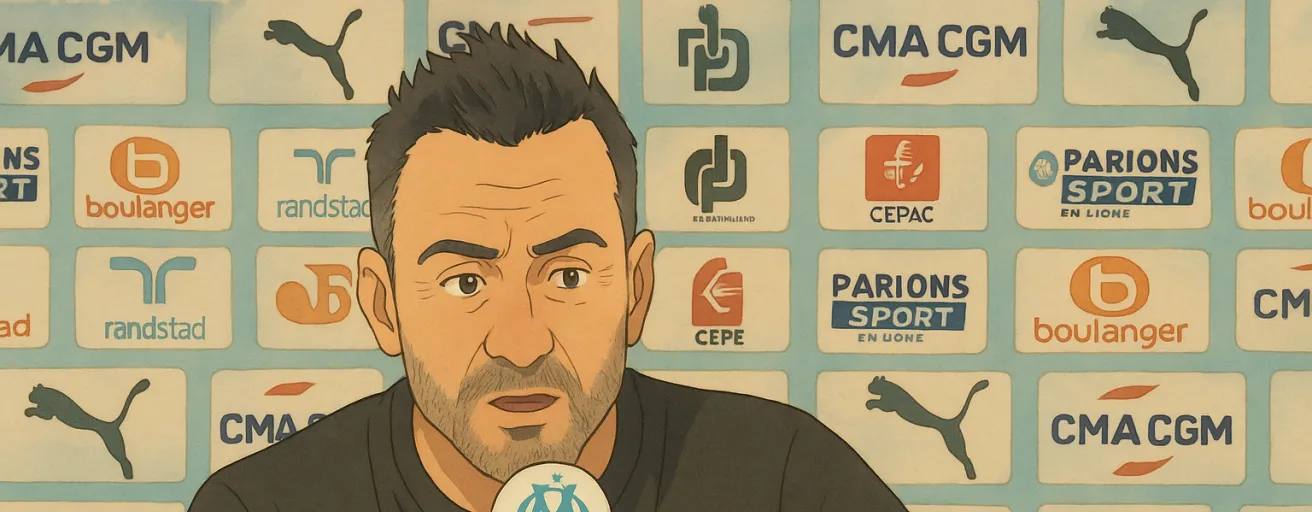A victory that speaks volumes
Olympique de Marseille continues its irresistible run. After having crushed Ajax (4–0) in the Champions League, the Phocaeans confirmed it at Saint-Symphorien, winning 3–0 against FC Metz thanks to O’Riley, Gouiri and Paixão.
But beyond the scoreline, it’s the manner that stands out: a disciplined, confident OM, able to control the tempo and impose its will in a match many would have deemed tricky.
For Roberto De Zerbi, this victory symbolizes a deep evolution: “I’m happy, because beyond the 3–0 and the fact that Metz is bottom of the table, it was a very difficult match. Last year, we would have lost this one,” he told BeIN Sport.
True to his demanding nature, the Italian coach didn’t only want to talk about results but about learning: “Without mentioning the new players who are very strong, it shows we’ve gained maturity. We now know how to manage these kinds of games, be patient, and strike at the right moment.”
Patience as a weapon
What has changed at OM is, above all, the relationship with time. Gone are the rushed starts of past seasons, those messy beginnings where passion overtook clarity.
In Metz, Marseille accepted waiting. To circulate the ball. To control. To suffocate the opponent without exposing itself. “If you lose balance and order, you give confidence to the opponent, and the match becomes chaotic,” summarized De Zerbi in the press conference.
A sentence that could sum up his entire project: balance above all else. And to achieve that, he built a clear structure—three defenders at the back, two midfielders providing support, and wing-backs able to make the difference on the flanks.
This Saturday, the plan worked perfectly. Paixão and Weah stretched Metz’s block, O’Riley shone going forward, and Højbjerg, the real metronome, calmly orchestrated the build-up.
The collective before individuals
De Zerbi’s trademark asserts itself day after day: identity, high standards, coherence. The Italian manager made a point of praising the collective above all.
“It’s a strong team that can still progress everywhere: in pressing, finishing, and managing weaker phases.”
Progress is visible—and not only in possession. Without the ball, OM managed to maintain constant intensity, snuffing out Metz’s transitions.
O’Riley once again confirmed his importance in the system: “Pairing Højbjerg (right-footed) and O’Riley (left-footed) gives us an advantage,” explained the coach. “Matt has that ability to move forward at the right time.”
The Dane and the Welshman embody this rise in power: clear-headed, involved, decisive.
Robinho, the bold gamble
In the starting lineup, one surprise: Robinho, preferred over Aubameyang. A tactical choice fully assumed by De Zerbi.
“Metz defended with five, their central defenders often stepped out on Greenwood and Ángel Gomes,” he explained. “We needed someone to attack the space in behind. Robinho has those qualities.”
The gamble almost paid off before his muscle injury in the second half. The Italian coach remained cautious: “We’ll run tests tomorrow to find out, but he gave his all. It was the right match for him.”
Once again, the manager’s willingness to rotate shows that at Marseille, no one is untouchable—only the coherence of the game plan matters.
Managing the squad
At a time when matches come thick and fast, De Zerbi juggles brilliantly between the need to rotate and to maintain momentum.
Against Metz, he decided to start O’Riley and Paixão again after their appearance against Ajax. A winning choice.
“There are a lot of strong players in midfield: Vermeeren, Kondogbia, Højbjerg, O’Riley, Ángel Gomes… it’s hard to make choices.”
And yet, the coach manages to keep everyone involved. The substitutes step up, the starters deliver.
A rare chemistry, the result of clear communication and a well-defined hierarchy. In Marseille, the unity of the dressing room is palpable—a rare thing in recent years.
The Gouiri case and continuity
Amine Gouiri, who had scored one goal and provided one assist in his past two games, didn’t start this time. A purely tactical decision, according to De Zerbi.
“He had nothing to prove. I really like the player and want to help him improve,” he clarified.
Proof that the coach’s trust is absolute. The Franco-Algerian is gradually establishing himself as a credible option in the Olympian attacking system, where competition is fierce.
Paixão, meanwhile, confirmed his return to form. Energetic and inspired, he rediscovered the efficiency that made him stand out in Curitiba. His 3–0 goal, full of opportunism, sealed the win and sent the Marseille bench into celebration.
A new maturity
This 3–0 win in Metz is no ordinary victory. It’s the symbol of an OM that has grown.
Last year, this kind of match often ended in a frustrating draw or an undeserved defeat.
Today, Marseille knows how to manage, to wait, and to kill the game at the right moment.
It’s the mark of a great team in the making—the one De Zerbi is building, day after day, without betraying his principles: play, rigor, and demand.
“This is one of our best spells,” he concluded, before tempering with humor: “And here, when everything is going well, you always have to be careful…”
A knowing wink from a coach who understands that in Marseille, nothing is ever guaranteed. But for the first time in a long time, the Vélodrome can dream in peace.







Join the debate!
Share your take, ask away, banter with fellow fans—your voice keeps our digital Velodrome roaring.